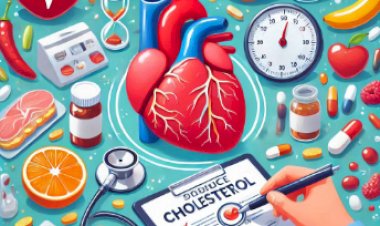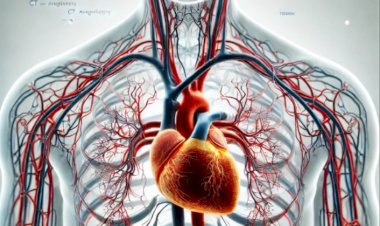Cholesterol: Its Health Impacts and Ways to Reduce
Learn about the health impacts of cholesterol and discover ways and foods to reduce it. Find out how to improve your cholesterol levels and reduce the risk of heart disease and stroke.
Cholesterol is a waxy, fat-like substance that is naturally produced by the liver and is also found in certain foods. It plays a crucial role in building cells and producing hormones in the body. However, too much cholesterol in the blood can lead to serious health problems, such as heart disease and stroke. In this article, we will explore the health impacts of cholesterol and ways and foods to reduce it.
Health Impacts of Cholesterol:
Cholesterol is transported through the bloodstream in two types of lipoproteins: low-density lipoprotein (LDL) and high-density lipoprotein (HDL). LDL is often referred to as "bad" cholesterol because it can build up in the walls of arteries, leading to blockages and an increased risk of heart disease and stroke. On the other hand, HDL is known as "good" cholesterol because it helps remove excess cholesterol from the bloodstream.
High levels of LDL cholesterol can lead to the development of plaque in the arteries, which can increase the risk of heart disease and stroke. Over time, this plaque buildup can narrow the arteries and reduce blood flow to vital organs like the heart and brain, leading to serious health problems.
Ways to Reduce Cholesterol:
-
Exercise regularly: Regular physical activity can help reduce LDL cholesterol levels and increase HDL cholesterol levels. Aim for at least 30 minutes of moderate-intensity exercise, such as brisk walking, most days of the week.
-
Maintain a healthy weight: Being overweight or obese can increase LDL cholesterol levels and decrease HDL cholesterol levels. Losing weight through a combination of healthy eating and regular exercise can help improve cholesterol levels.
-
Quit smoking: Smoking can lower HDL cholesterol levels and increase LDL cholesterol levels. Quitting smoking can help improve cholesterol levels and reduce the risk of heart disease and stroke.
-
Limit saturated and trans fats: Saturated and trans fats can raise LDL cholesterol levels. Limit your intake of these fats by choosing lean proteins, such as chicken and fish, and using oils like olive or canola instead of butter or margarine.
-
Increase fiber intake: Eating foods high in soluble fiber, such as oats, beans, and fruits, can help reduce LDL cholesterol levels.
-
Consume foods rich in omega-3 fatty acids: Omega-3 fatty acids, found in fatty fish like salmon, can help increase HDL cholesterol levels and reduce triglycerides, a type of fat in the bloodstream.
Foods to Reduce Cholesterol:
-
Oats: Oats contain a type of soluble fiber called beta-glucan, which can help reduce LDL cholesterol levels.
-
Nuts: Nuts, such as almonds and walnuts, are rich in healthy fats, fiber, and plant sterols, which can help reduce LDL cholesterol levels.
-
Fatty fish: Fatty fish, such as salmon and tuna, are rich in omega-3 fatty acids, which can help increase HDL cholesterol levels and reduce triglycerides.
-
Fruits and vegetables: Fruits and vegetables are high in soluble fiber and can help reduce LDL cholesterol levels.
-
Beans and legumes: Beans and legumes, such as chickpeas and lentils, are rich in soluble fiber and can help reduce LDL cholesterol levels.
In conclusion, high cholesterol levels can have serious health impacts, but there are ways and foods to reduce it. By making lifestyle changes, such as exercising regularly, maintaining a healthy weight, and quitting smoking, and consuming foods that are low in saturated and trans fats and high in soluble fiber and omega-3 fatty acids, you can help improve your cholesterol levels and reduce the risk of heart disease and stroke.

 Ashish Kumar
Ashish Kumar 














